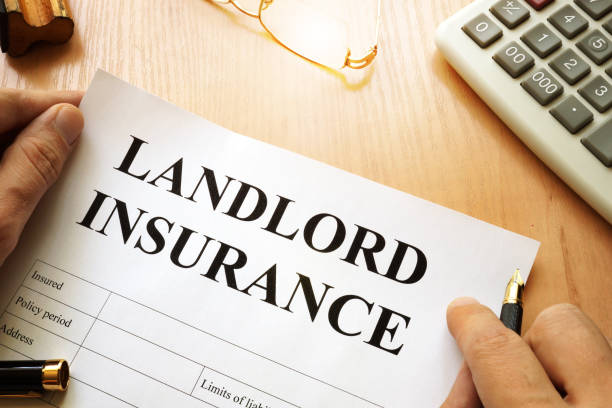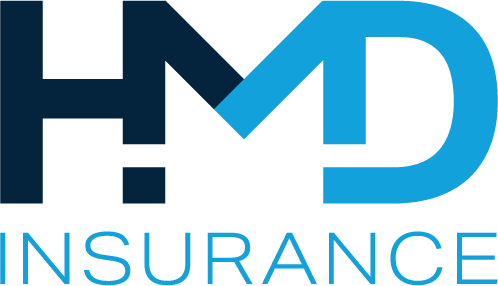
Landlord insurance is a crucial aspect of managing rental properties effectively. It serves as a safety net for landlords, protecting against various risks associated with investment properties. This type of insurance can cover a range of scenarios, from damage caused by natural disasters to loss of rent due to tenant issues. Understanding the ins and outs of landlord insurance can significantly aid property investors in making informed decisions regarding their rental properties.
What Does Landlord Insurance Cover for Investment Properties?

Landlord insurance is specifically designed to protect property owners who rent out their properties. Unlike a standard home insurance policy, which typically covers owner-occupied residences, landlord insurance covers the unique risks associated with rental properties. This insurance can cover loss or damage caused by various unforeseen incidents, ensuring that landlords can maintain their investment properties without incurring crippling costs. It is essential for landlords to understand the full details of their insurance product, including the specific risks covered and any exclusions that might apply.
Landlord insurance can include a variety of coverage options tailored to the needs of property investors. The primary components often encompass building insurance, which protects the physical structure of the rental property from risks such as fire, storm, or vandalism. Additionally, contents insurance is vital for landlords who provide furnished rentals, covering loss or damage to items within the property. Furthermore, many landlord insurance policies include coverage for loss of rent, which compensates landlords if their property becomes unliveable due to insured events, thus preventing financial strain during repair periods.
While both landlord insurance and home insurance provide coverage for properties, the primary difference lies in the occupancy status. Home insurance policies are designed for homeowners who reside in the property, covering personal belongings, liability, and the structure itself. In contrast, landlord insurance focuses on the unique risks faced by rental property owners, such as tenant-related issues and additional liabilities associated with renting out a property. This distinction is critical, as having the right type of insurance can safeguard landlords against potential losses that standard home insurance may not cover.
How to Get a Quote for Landlord Insurance Online?
Obtaining a landlord insurance quote is a straightforward process that can be done online. The first step is to research various insurance providers offering landlord insurance policies. Once you have a list, you can visit their websites and fill out the necessary forms to get a quote. Typically, you will need to provide details about your rental property, including its location, size, and any specific features that may influence the insurance premium. This information is crucial for insurance companies to assess the risk and provide accurate landlord insurance quotes.
Many insurance companies offer online calculators that can help landlords estimate their insurance costs based on specific criteria. These calculators take into account factors such as the property’s value, the sum insured, and the type of coverage desired. By using an insurance calculator, landlords can get a clearer idea of their potential premiums and make more informed decisions on the level of coverage they wish to pursue. This tool is particularly useful for comparing different policies and understanding how various factors impact the overall cost.
When getting a quote online, it is essential to pay attention to the coverage limits, exclusions, and any additional endorsements that may be available. Each landlord insurance policy will have its own product disclosure statement (PDS), which outlines the full details of what the insurance covers. Reading the PDS is crucial, as it helps landlords understand their rights and obligations under the policy. Additionally, consider looking at customer reviews and the insurer’s reputation to ensure that you are choosing a reliable provider that can meet your insurance needs effectively.
How Can Property Investors Benefit from Landlord Insurance?

For property investors, having landlord insurance is not just an option; it’s a necessity. Comprehensive coverage protects rental properties from various risks, including damage to the property, liability claims from tenants, and loss of rent. By investing in the right insurance product, landlords can secure their financial interests and ensure their investments remain profitable. This coverage acts as a safety net, allowing landlords to focus on growing their investment portfolio without the constant worry of unforeseen expenses.
Understanding the target market determination is crucial for property investors when choosing the right landlord insurance policy. Insurers will assess the specific needs of landlords based on the type of rental properties they own and their investment strategies. By grasping what types of insurance products are available, landlords can find policies that not only meet their coverage needs but also cater to their financial situation or needs. This targeted approach ensures that property investors receive tailored solutions that align with their investment goals.
Evaluating the financial situation or needs of property investors is essential when considering landlord insurance. Investors must assess their risk tolerance, the value of their rental properties, and their long-term financial objectives. This evaluation helps landlords choose the appropriate level of coverage and sum insured that will adequately protect against potential risks. By aligning their insurance choices with their financial strategies, property investors can enhance the sustainability of their rental business and mitigate the impact of unforeseen events.
What Are the Types of Landlord Insurance Policies Available?

There are various types of landlord insurance policies available to suit different investment needs. These policies can range from basic building insurance to comprehensive options that include contents cover and loss of rent protection. Each insurance product is designed to tackle specific risks, allowing landlords to choose a policy that best fits their rental property and investment strategy. Exploring these options is essential for ensuring that landlords have adequate protection tailored to their unique circumstances.
Landlords must understand the difference between building insurance and contents insurance to make informed choices about their coverage. Building insurance protects the physical structure of the rental property from risks such as fire, theft, or natural disasters. On the other hand, contents insurance covers the belongings within the property, such as furniture and appliances, which is particularly relevant for furnished rentals. Many landlords opt for building and contents insurance to provide comprehensive protection for their rental properties, ensuring that they are covered for various potential risks.
Choosing the right sum insured for your rental property is a critical aspect of securing adequate landlord insurance. The sum insured should reflect the cost to rebuild or repair the property in case of damage, as well as the value of any contents included in the rental. Landlords should regularly review their property values and adjust their sum insured accordingly to ensure that they are not underinsured. This proactive approach can provide peace of mind, knowing that their investment properties are fully protected against any loss or damage that may occur.
Conclusion
Landlord insurance, also known as investment property insurance, is important for protecting rental properties. It covers risks like damage to the building and loss of rental income. This type of insurance helps landlords manage their investments and provides peace of mind. By understanding landlord insurance, property owners can make smart choices to safeguard their investment properties.
Frequently Asked Questions:
What is investment property insurance?
Investment property insurance is a type of coverage designed specifically for rental properties. It helps protect landlords from financial losses due to damage to your property or liability claims from tenants. This insurance can provide peace of mind for those renting out their homes.
How does home insurance differ from investment property insurance?
Home insurance typically covers personal residences, while investment property insurance is tailored for rental properties. Investment property insurance focuses on protecting the landlord’s financial interests, covering damage to your investment property and potential loss of rent. Home insurance does not usually cover the same risks associated with renting out a property.
What is included in landlord insurance?
Landlord insurance often includes coverage for damage to your property, liability protection, and loss of rent. Some policies may also offer landlord contents cover, which protects items owned by the landlord within the rental property. It’s important to review what is included in landlord insurance to ensure it meets your needs.
How does tenant behaviour affect investment property insurance?
Tenant behaviour can impact your investment property insurance in several ways. If a tenant causes damage to your property, the insurance can help cover the cost of repairs or replacement. Additionally, if a tenant does not pay rent, loss of rent coverage in your policy may assist during that period of insurance
Can I use insurance calculators for investment property insurance?
Yes, you can use insurance calculators to estimate the cost of investment property insurance. These tools help you understand how much coverage you need and what it might cost based on factors like location and property value. Using an insurance calculator can guide you in finding the right policy that fits within your budget.
What is landlord contents insurance?
Landlord contents insurance provides coverage for items owned by the landlord that are located within the rental property. This type of coverage helps protect against loss or damage to furniture, appliances, and other belongings that belong to the landlord. It is an important part of general insurance for those renting out their properties.





